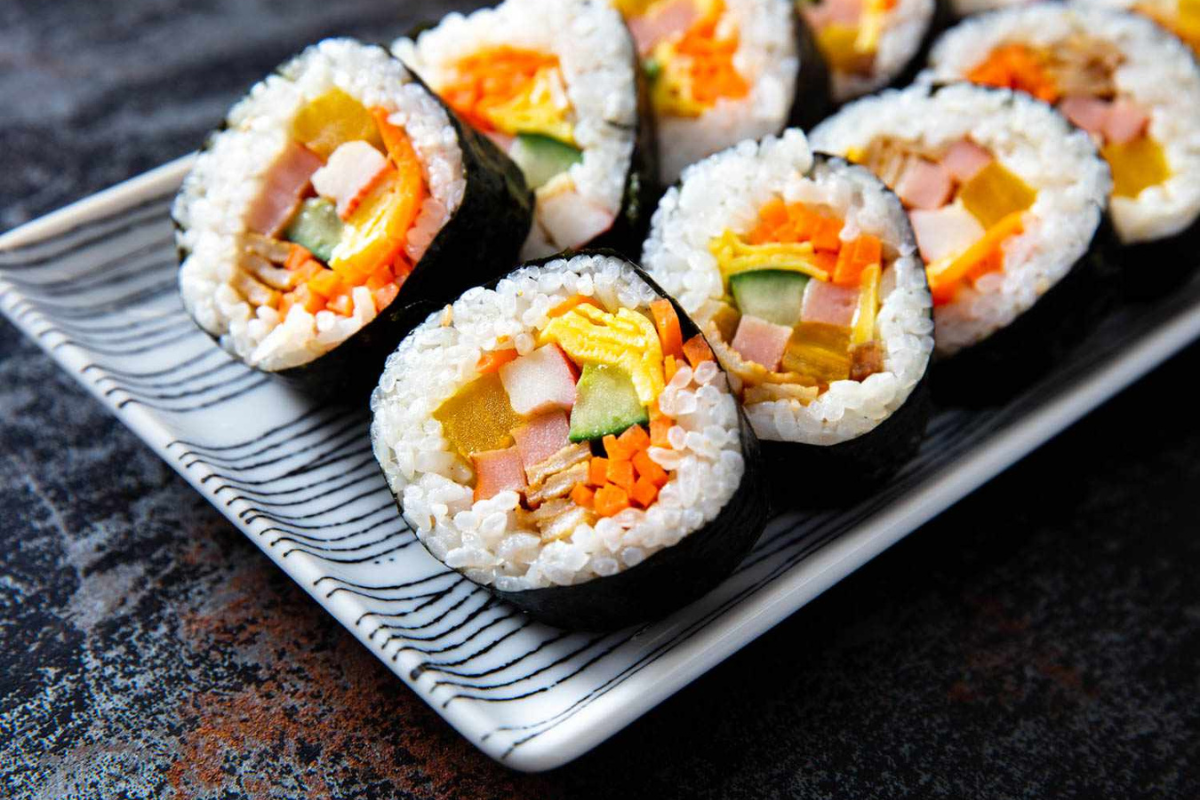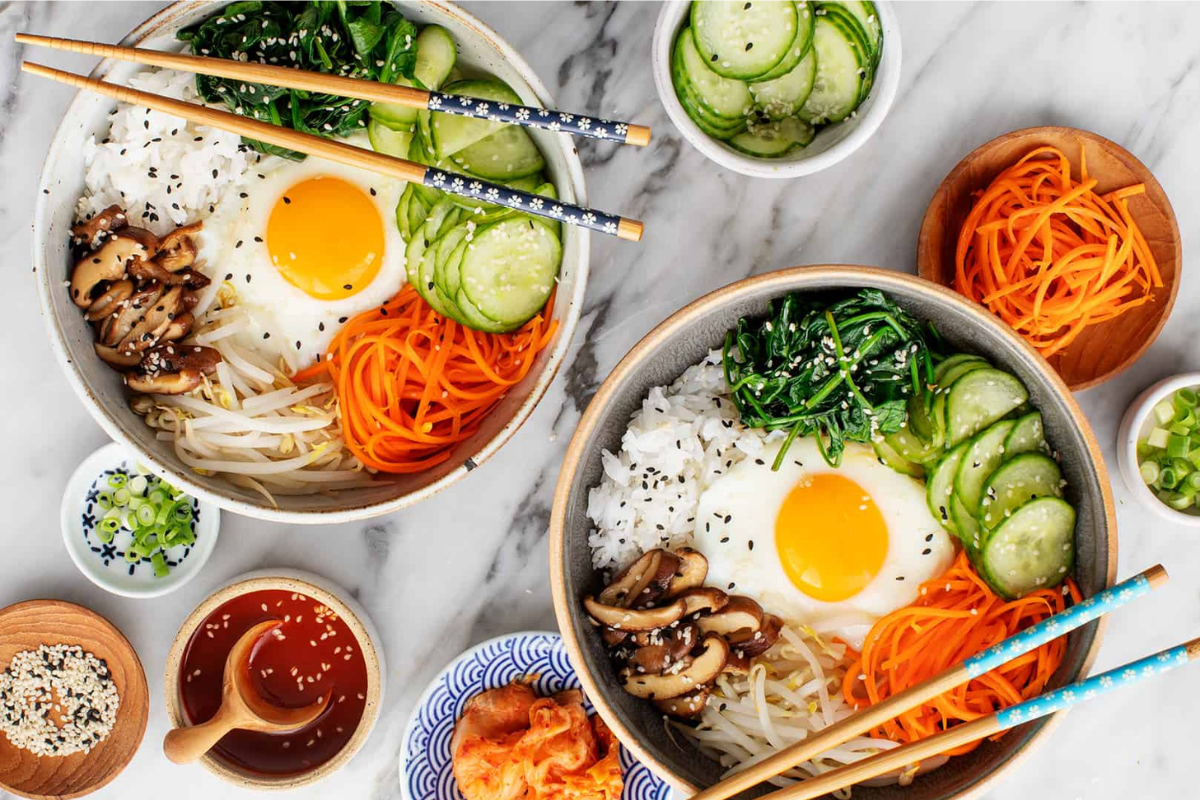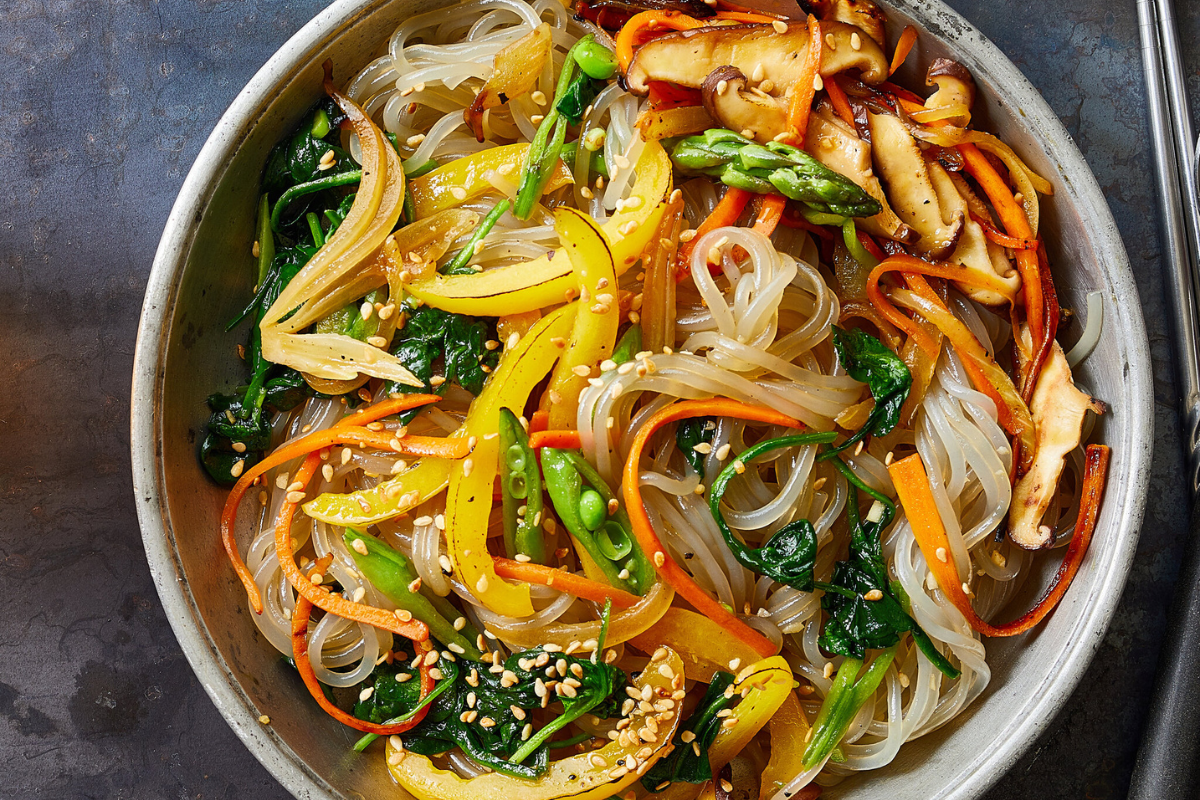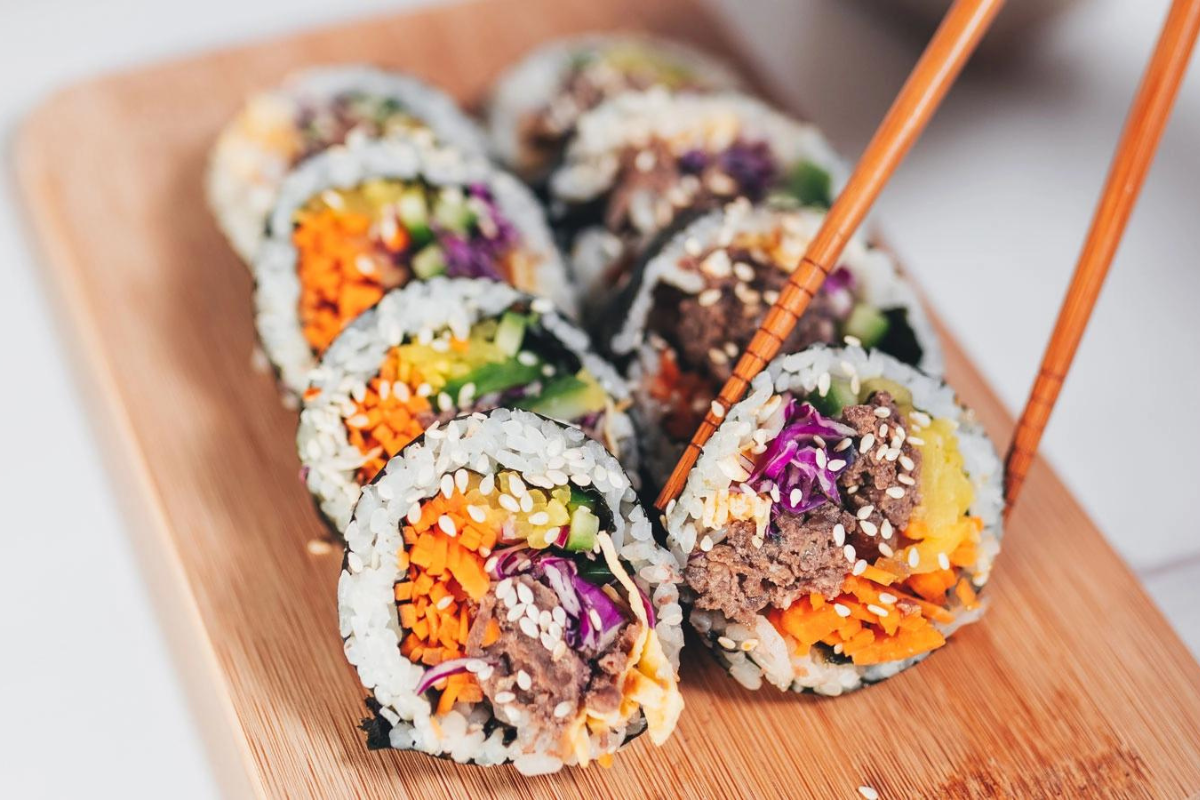Korea is known for its delicious and diverse cuisine, but traditionally, meat has played a central role in Korean dishes. However, in recent years, there has been a growing interest in plant-based cuisine in South Korea, driven by several factors.

One factor is the increasing awareness of the health benefits of plant-based diets. Many Koreans are becoming more health-conscious. Therefore, they are looking for ways to reduce their meat consumption. Although plant-based diets are low in saturated fat and cholesterol, they are high in fiber and vitamins. This can make them a healthier option for people with heart disease, high blood pressure, and other chronic diseases.
Another factor driving the rise of plant-based cuisine in South Korea is the growing concern about environmental sustainability. The production of meat has a significant environmental impact, and many Koreans are looking for ways to reduce their environmental footprint. Not only do plant-based diets require less land and water to produce, but they also generate fewer greenhouse gasses.
In addition, there is a growing awareness of animal welfare concerns in South Korea. Many Koreans are becoming more concerned about the way that animals are raised and slaughtered for food. Plant-based diets offer a way to reduce the suffering of animals.
The rise of plant-based cuisine in South Korea is a positive development for both the health of the population and the environment. Plant-based diets offer several benefits. They are becoming increasingly popular and accessible in South Korea.
Bibimbap: A Korean classic that is easy to make vegan or vegetarian

Bibimbap is a popular Korean dish that consists of rice, vegetables, a fried egg, and gochujang, which is Korean chili paste. It is a hearty and flavorful dish that is also easy to make vegan or vegetarian. Bibimbap is thought to have originated in the city of Jeonju, South Korea, over a thousand years ago. It was originally a dish eaten by farmers and peasants, as it was a way to use up leftover vegetables. Bibimbap became popular throughout Korea in the 20th century and is now one of the most popular Korean dishes in the world.
To make bibimbap vegan or vegetarian, simply omit the fried egg and use a plant-based gochujang substitute. There are many different plant-based gochujang substitutes available, or you can make your own by mixing together soy sauce, chili paste, rice vinegar, and sugar.
For the best flavor, use a variety of vegetables in your bibimbap. Be sure to cook the vegetables until they are softened, but still have a bit of crunch. Don’t forget the gochujang! It is the essential ingredient that gives bibimbap its unique flavor. If you are using a plant-based gochujang substitute, be sure to taste the bibimbap and adjust the amount of gochujang to taste.
Bibimbap is a delicious and versatile dish that is perfect for any occasion. It is easy to make and can be tailored to your dietary preferences. Whether you are vegan, vegetarian, or omnivore, bibimbap is a dish that everyone can enjoy.
Japchae: A Korean classic made vegan or vegetarian

Japchae is a popular Korean dish made with glass noodles, vegetables, and sesame oil. It is a versatile dish that can be served as a main course or side dish. Japchae is also a good source of protein, thanks to the tofu or tempeh that is typically added. Japchae is thought to have originated in the early 17th century, during the Joseon Dynasty. It was originally a dish eaten by the aristocracy, but it became popular throughout Korea in the 20th century.
Japchae can be easily made vegan or vegetarian by omitting the tofu or tempeh and using a plant-based gochujang substitute. Gochujang is a Korean chili paste that is typically added to japchae for flavor. There are many different plant-based gochujang substitutes available, or you can make your own by mixing together soy sauce, chili paste, rice vinegar, and sugar.
Japchae is a delicious and versatile dish that is perfect for any occasion. It is easy to make and can be tailored to your dietary preferences. Whether you are vegan, vegetarian, or omnivore, japchae is a dish that everyone can enjoy.
Plant-based japchae is becoming increasingly popular as more and more people are adopting plant-based diets. This is due to many factors, including the health benefits of plant-based diets, the environmental concerns associated with meat production, and the growing awareness of animal welfare issues.
Plant-based japchae is a delicious and healthy alternative to traditional japchae. It is a good source of protein, fiber, and vitamins, and it is low in saturated fat and cholesterol. Plant-based japchae is also a good choice for people who are trying to reduce their environmental impact.
Veggies Gimbap: A delicious and nutritious Korean classic

Gimbap is a popular Korean dish made with seaweed, rice, and a variety of fillings, such as vegetables, kimchi, and imitation crab meat. It is a versatile dish that can be enjoyed as a snack, lunch, or light dinner. Gimbap is also a good source of fiber and carbohydrates, making it a nutritious meal option.
To make gimbap plant-based, simply omit the imitation crab meat and use plant-based substitutes for the other fillings, such as tofu, tempeh, or mushrooms. There are many different plant-based gimbap fillings available, or you can make your own by marinating or cooking tofu or tempeh with your favorite flavors.
Plant-based gimbap is a healthy and nutritious meal option. It is low in saturated fat and cholesterol, so it is a good source of fiber and carbohydrates. Plant-based gimbap is also a good source of protein, thanks to the tofu or tempeh that is typically added.

